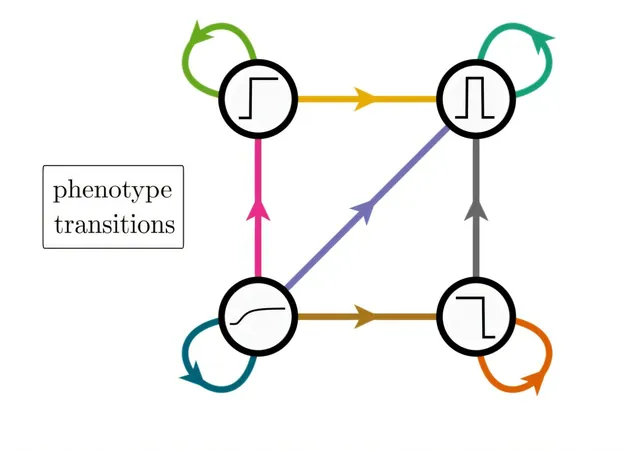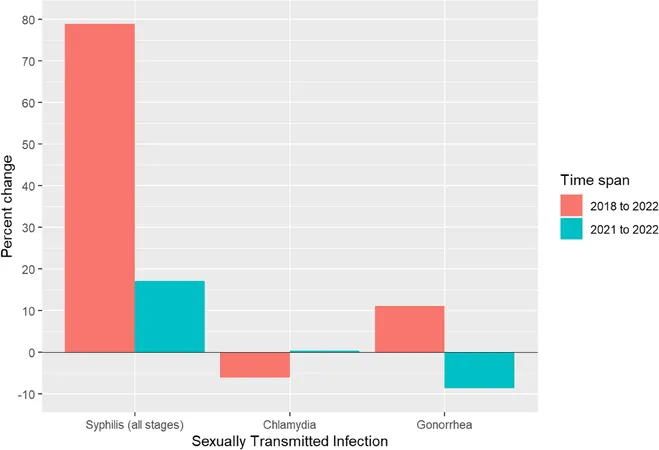
Skyrocketing Private Psychology Costs Leave Many Seeking Help Empty-Handed
2025-09-18
Author: Arjun
Private Psychology Fees Surge by 34% as Demand Outstrips Supply
In a shocking revelation, the cost of private psychological services in the UK has surged dramatically, with prices increasing by a staggering 34% since 2022. Patients now face an average bill of £1,550 for just 12 sessions, up from £1,152 three years ago. These figures come from a comprehensive survey by myTribe Insurance, which highlights the evolving landscape of private mental health care.
Practitioners Turn Away New Clients Amid Overwhelming Demand
The increasing costs are exacerbated by a workforce at capacity. Nearly 30% of psychologists report they are unable to take on new clients due to their already high patient loads. This alarming trend comes at a time when many are experiencing significant delays in accessing NHS mental health care, with record numbers seeking help for anxiety and depression.
Chris Steele, founder of myTribe Insurance, emphasized the troubling implications of these rising fees: “A 34% rise in consultation fees is a wake-up call, illustrating how private talking therapies are becoming less accessible for those who need them most.”
Regional Price Variations and Waiting Times
The financial strain varies by region. Psychologists in England lead the pack, charging an average of £131 per session, while those in Scotland charge slightly less at £124. Interestingly, patients in Scotland also enjoy the shortest waiting times, averaging just 16.9 days, compared to Wales, where clients face waits of nearly 24 days.
According to the survey of 349 practitioners, Leicester boasts the highest average session cost at £164, followed closely by London at £160. In contrast, cities like Colchester, Bath, and Coventry have rates as low as £85, £99, and £100, respectively.
Seeking Help? Consider Online Consultations!
Steele advises those in need to explore various options, including online support, which might come from practitioners far from home, to avoid these exorbitant costs and alleviate waiting times.
The NHS Crisis: A Two-Tier System?
As demand for services continues to rise, the British Psychological Society warns of a looming crisis. With one in three individuals seeking private care due to NHS delays, this trend toward private treatment raises concerns about a potential two-tier healthcare system.
Research from last year by Rethink Mental Illness found that around 1.8 million people in England are currently on waiting lists for NHS mental health care. The consequences of this are dire—ranging from increased suicide attempts to job losses and hospitalizations that further strain NHS resources.
A Call for Action from NHS England
In response to the swelling waiting lists, NHS England reports that it assists over a million individuals annually through its talking therapies services. They have announced plans to expand these services further by increasing the therapist workforce and aiming to reduce waiting times.
The question remains: as private costs spiral, will essential mental health support remain within reach for those who need it most?




 Brasil (PT)
Brasil (PT)
 Canada (EN)
Canada (EN)
 Chile (ES)
Chile (ES)
 Česko (CS)
Česko (CS)
 대한민국 (KO)
대한민국 (KO)
 España (ES)
España (ES)
 France (FR)
France (FR)
 Hong Kong (EN)
Hong Kong (EN)
 Italia (IT)
Italia (IT)
 日本 (JA)
日本 (JA)
 Magyarország (HU)
Magyarország (HU)
 Norge (NO)
Norge (NO)
 Polska (PL)
Polska (PL)
 Schweiz (DE)
Schweiz (DE)
 Singapore (EN)
Singapore (EN)
 Sverige (SV)
Sverige (SV)
 Suomi (FI)
Suomi (FI)
 Türkiye (TR)
Türkiye (TR)
 الإمارات العربية المتحدة (AR)
الإمارات العربية المتحدة (AR)